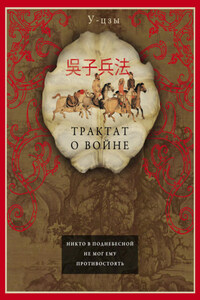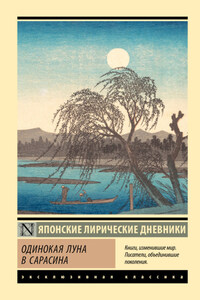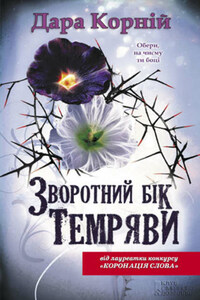A WORD regarding the circumstances under which this translation was made will be pardoned by all children of dear mothers.
Mrs. Cornelia Frances Bates (1826-1908), a graduate of Mount Holyoke in the days of Mary Lyon and the widow of a Congregational minister, took up the study of Spanish at the age of seventy-one. Until her death ten years later, the proverbial ten years of “labor and sorrow,” her Spanish readings and translations were a keen intellectual delight. Her Spanish Bible, from which she had committed many passages to memory, was found at her death no less worn than her English one. Even a few hours before dying, she repeated in Spanish, without the failure of a syllable, the Shepherd’s Psalm and the Lord’s Prayer.
So youthful was her spirit that, of the various modern Spanish works with which she became acquainted, nothing fascinated her so much as Becquer’s strange, romantic tales. The wilder they were, the brighter would be the eager face, under its soft white cap, bent over the familiar little green volumes and the great red dictionary. Seeing the pleasure she took in these legends and learning that no complete English translation existed, I suggested that we unite in a “Becquer Book.” Her full share of the work was promptly done; mine was delayed; and the volume – which we had meant to inscribe to my sister – becomes her own memorial.
Gratitude for helpful suggestions is due to the late Mr. Frederick Gulick of Auburndale, Mass., formerly of San Sebastian, and to Señorita Carolina Marcial, formerly of Seville and now of Wellesley College. Especial and most cordial acknowledgment is made of the critical reading given the entire manuscript by Miss Alice H. Bushée of the Colegio Internacional, Madrid.
THE writer of these tales was a young poet, oppressed by illness, care and poverty. His brief life held many troubles. Born in Seville, February 17, 1836, of a distinguished family that came to Andalusia from Flanders at about the end of the sixteenth century, he was but five years old, the fourth of eight little sons, when he lost his father. The bereavement was greater than anyone knew, for Don José Dominguez Becquer, a genre painter of repute, could have given this imaginative child, a genius in germ, parental sympathy and guidance in an unusual degree. Less than five years later, the mother died, and the disposition of the orphans became a puzzling problem for relatives and friends. Gustavo, who had already attended the day school of San Antonio Abad, was admitted, through the efforts of an uncle, to the Colegio de San Telmo, a naval academy, maintained by the government, on the banks of the Guadalquivir. This famous school of Seville was originally founded by the companions of Columbus in gratitude to St. Elmo, patron of mariners. Here Gustavo found a friend of congenial tastes, Narciso Campillo, with whom he composed and presented before their admiring mates what Señor Campillo, who also made a name for himself in Spanish letters, has described as “a fearful and extravagant drama.” But Gustavo had enjoyed barely a year of this new life when Isabella II suppressed the academy, bestowing building and grounds on her newly wedded sister, the Duchesse de Montpensier. Visitors to modern Seville know well the Palacio de Santelmo, with the fountains playing in its marble courts, with its gardens of orange trees, palms and aloes, of trellised roses and luxuriant tropic shrubs; but who gives a thought there to the exiled boy thrown again, at the age of ten, upon the chances of the world?
His godmother, Doña Manuela Monchay, opened her doors to the waif, and in her comfortable home he dwelt for the next eight years. His schooling was over, but he read his way through Doña Manuela’s library and, at fourteen, entered the studio of a Seville painter; here for two years he trained his talent for drawing. Then he changed to the rival studio, that of his father’s brother, who was sufficiently impressed by the lad’s literary promise to have him taught a little Latin. Meanwhile his godmother, childless and well-to-do, was urging him to adopt a mercantile career. Had he consented, it is supposed that she would have made him her heir, and his manhood, instead of the exhausting struggle it was for bread and shelter, might have been, from the worldly point of view, prosperous enough. But the visionary youth, who, says his friend Correa,1 “had learned to draw while he was yet learning to write, whose unbounded passion for reading had given him wider horizons than those of book-keeping, and who could never do a sum in mental arithmetic,” would not betray his ideal. While his prudent godmother was making her own plans for his future, he was composing with Campillo the opening cantos of an epic on The Conquest of Seville, or wandering alone on the banks of the Guadalquivir, his “majestic Bétis, the river of nymphs, naiads and poets, which, crowned with belfries and laurels, flows to the sea from a crystal amphora.” In the shade of the white poplars he would lie and dream “of an independent, blissful life, like that of the bird, which is born to sing, while God provides it with food, … that tranquil life of the poet, which glows with a soft lustre from generation to generation.” And when that life should be over, he saw his grateful city, the Sultana of Andalusia, laying her poet down “to dream the golden dream of immortality on the banks of the Bétis, whose praise I should have sung in splendid odes, in that very spot where I used to go so often to hear the sweet murmur of its waves.” His pensive fancy loved to picture that white cross under the poplars whose green and silver leaves, as they rustled in the wind, would seem to be praying for his soul, while the birds in their branches would carol at dawn a joyous resurrection hymn. And when the river reeds and the wild morning-glories, his favorite “blue morning-glories with a disk of carmine at the heart,” hovered over by “golden insects with wings of light,” should have grown up about the marble, hiding his time-blurred name with a leafy curtain, what matter? “Who would not know that I was sleeping there?” And so, to escape commercial drudgery and realize these fair visions, the young Andalusian, at eighteen, the mid-point of his life, with no more than sufficed for the costs of the journey to Madrid, started forth on his quest of glory.








